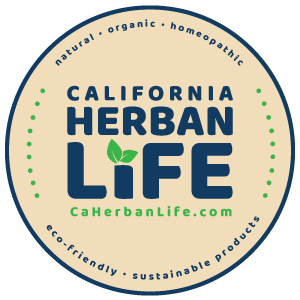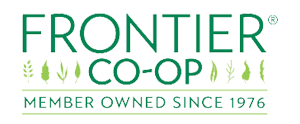
The 10 Best Nootropic Supplements to Boost Brain Power
Healthline: Mental Health In Focus
For Mental Health Awareness month, we interviewed Taraji P. Henson, Jewel, Michelle Williams, & more in an honest conversation to bring the state of mental health in focus. Watch the recording here.
Nootropics are natural supplements or drugs that have a beneficial effect on brain function in healthy people.
Many of these can boost memory, motivation, creativity, alertness and general cognitive function. Nootropics may also reduce age-related declines in brain function.
Here are the 10 best nootropic supplements to boost your brain function.
1. Fish Oils
Fish oil supplements are a rich source of docosahexaenoic acid (DHA) and eicosapentaenoic acid (EPA), two types of omega-3 fatty acids.
These fatty acids have been linked with many health benefits, including improved brain health (1Trusted Source).
DHA plays a vital role in maintaining the structure and function of your brain. In fact, it accounts for around 25% of the total fat, and 90% of the omega-3 fat, found in your brain cells (2Trusted Source, 3Trusted Source).
The other omega-3 fatty acid in fish oil, EPA, has anti-inflammatory effects that may protect the brain against damage and aging (4Trusted Source).
Taking DHA supplements has been linked with improved thinking skills, memory and reaction times in healthy people who have low DHA intakes. It has also benefitted people experiencing a mild decline in brain function (5Trusted Source, 6Trusted Source, 7Trusted Source).
Unlike DHA, EPA isn’t always linked with improved brain function. However, in people with depression, it has been associated with benefits like improved mood (8Trusted Source, 9Trusted Source, 10Trusted Source, 11Trusted Source, 12Trusted Source).
Taking fish oil, which contains both these fats, has been shown to help reduce the decline in brain function associated with aging (13Trusted Source, 14Trusted Source, 15Trusted Source, 16Trusted Source, 17Trusted Source).
However, evidence for fish oil’s preservative effects on brain health is mixed (18Trusted Source, 19Trusted Source).
Overall, the best way to get the recommended amount of omega-3 fatty acids is by eating two portions of oily fish per week (20Trusted Source).
If you can’t manage this, then taking a supplement could be beneficial. You can find many supplements online.
More research is required to find out how much and what ratios of EPA and DHA are beneficial. But taking 1 gram per day of combined DHA and EPA is generally recommended to maintain brain health (21Trusted Source).
BOTTOM LINE:
If you don’t eat the recommended amount of oily fish, consider taking a fish oil supplement to help promote good brain health and healthy brain aging.
Resveratrol is an antioxidant that occurs naturally in the skin of purple and red fruits like grapes, raspberries and blueberries. It’s also found in red wine, chocolate and peanuts.
It’s been suggested that taking resveratrol supplements could prevent the deterioration of the hippocampus, an important part of the brain associated with memory (22Trusted Source).
If this is true, this treatment could slow down the decline in brain function you experience as you get older (23Trusted Source).
Animal studies have also shown that resveratrol can improve memory and brain function (24Trusted Source, 25Trusted Source).
Additionally, one study on a small group of healthy older adults found that taking 200 mg of resveratrol per day for 26 weeks improved memory (26Trusted Source).
However, there currently aren’t enough human studies to be sure of resveratrol’s effects (27Trusted Source).
If you’re interested in trying it, you can find supplements online.
BOTTOM LINE:
In animals, resveratrol supplements have been shown to improve memory and brain function. It’s not yet clear if the treatment has the same effects in people.
3. Creatine
Creatine is a natural substance that plays an important role in energy metabolism. It’s found naturally in the body, mostly in muscles and in smaller amounts in the brain.
Although it’s a popular supplement, you can find it in some foods, namely animal products like meat, fish and eggs.
Interestingly, creatine supplements can improve memory and thinking skills in people who don’t eat meat (61Trusted Source).
4. Caffeine
Caffeine is a natural stimulant most commonly found in tea, coffee and dark chocolate.
Although it’s possible to take it as a supplement, there isn’t really any need when you can get it from these sources.
It works by stimulating the brain and central nervous system, making you feel less tired and more alert (28Trusted Source).
In fact, studies have shown that caffeine can make you feel more energized and improve your memory, reaction times and general brain function (29Trusted Source, 30Trusted Source, 31Trusted Source).
The amount of caffeine in one cup of coffee varies, but generally it’s 50–400 mg.
For most people, single doses of around 200–400 mg per day are generally considered safe and are enough to benefit health (32, 33Trusted Source, 34Trusted Source).
However, taking too much caffeine can be counterproductive and has been linked with side effects such as anxiety, nausea and trouble sleeping.
BOTTOM LINE:
Caffeine is a natural stimulant that can improve your brain function and make you feel more energized and alert.
5. Phosphatidylserine
Phosphatidylserine is a type of fat compound called a phospholipid, which can be found in your brain (35Trusted Source, 36Trusted Source).
It’s been suggested that taking phosphatidylserine supplements could be helpful for preserving brain health (37Trusted Source).
You can easily buy these supplements online.
Studies have shown that taking 100 mg of phosphatidylserine three times per day could help reduce age-related decline in brain function (38Trusted Source, 39Trusted Source, 40, 41Trusted Source).
Additionally, healthy people who take phosphatidylserine supplements of up to 400 mg per day have been shown to have improved thinking skills and memory (42Trusted Source, 43Trusted Source).
However, larger studies need to be carried out before its effects on brain function can be fully understood.
BOTTOM LINE:
Phosphatidylserine supplements could improve your thinking skills and memory. They could also help combat the decline in brain function as you age. However, further study is needed.
6. Acetyl-L-Carnitine
Acetyl-L-carnitine is an amino acid produced naturally in your body. It plays an important role in your metabolism, particularly in energy production.
Taking acetyl-L-carnitine supplements has been claimed to make you feel more alert, improve memory and slow down age-related memory loss (44Trusted Source).
These supplements can be found online.
Some animal studies have shown that acetyl-L-carnitine supplements can prevent age-related decline in brain function and increase learning capacity (45Trusted Source, 46Trusted Source).
In humans, studies have found that it may be a useful supplement for slowing the decline in brain function due to age. It may also be useful for improving brain function in people with mild dementia or Alzheimer’s (47Trusted Source, 48Trusted Source, 49Trusted Source, 50Trusted Source, 51Trusted Source, 52Trusted Source).
However, there is no research to show it has a beneficial effect in otherwise healthy people who aren’t suffering from a loss of brain function.
BOTTOM LINE:
Acetyl-L-carnitine could be helpful for treating a loss of brain function in the elderly and people with mental disorders such as dementia or Alzheimer’s. Its effects in healthy people are unknown.
7. Ginkgo Biloba
Ginkgo biloba is an herbal supplement derived from the Ginkgo biloba tree. It’s an incredibly popular supplement that many people take to boost their brain power, and it’s available online.
It’s thought to work by increasing blood flow to the brain and is claimed to improve brain functions like focus and memory (53Trusted Source).
Despite the widespread use of ginkgo biloba, results from studies investigating its effects have been mixed.
Some studies have found that taking ginkgo biloba supplements can help reduce age-related decline in brain function (54Trusted Source, 55Trusted Source, 56Trusted Source).
One study in healthy middle-aged people found that taking ginkgo biloba supplements helped improve memory and thinking skills (57Trusted Source, 58Trusted Source).
However, not all studies have found these benefits (59Trusted Source, 60Trusted Source).
BOTTOM LINE:
Ginkgo biloba may help improve your short-term memory and thinking skills. It may also protect you from age-related decline in brain function. However, results are inconsistent.
8. Bacopa Monnieri
Bacopa monnieri is a medicine made from the herb Bacopa monnieri. It’s used in traditional medicine practices like Ayurveda for improving brain function.
It’s been shown to improve thinking skills and memory, both in healthy people and in elderly people suffering from a decline in brain function (64Trusted Source, 65Trusted Source, 66Trusted Source, 67Trusted Source, 68Trusted Source, 69Trusted Source).
However, it’s worth noting that only repeated use of Bacopa monnieri has been shown to have this effect. People generally take about 300 mg per day and it may take around four to six weeks for you to notice any results.
Studies of Bacopa monnieri also show that it may occasionally cause diarrhea and an upset stomach. Because of this, many people recommend taking this supplement with food (70Trusted Source).
BOTTOM LINE:
Bacopa monnieri has been shown to improve memory and thinking skills in healthy people and in those with a decline in brain function.
9. Rhodiola Rosea
Rhodiola rosea is a supplement derived from the herb Rhodiola rosea, which is often used in Chinese medicine to promote well-being and healthy brain function.
It’s thought to help improve mental processing by reducing fatigue (71Trusted Source).
People taking Rhodiola rosea have been shown to benefit from a decrease in fatigue and improvement in their brain function (72Trusted Source, 73Trusted Source, 74Trusted Source).
However, results have been mixed (75Trusted Source).
A recent review by the European Food Safety Authority (EFSA) concluded that more research is required before scientists can know if Rhodiola rosea can reduce tiredness and boost brain function (76Trusted Source).
BOTTOM LINE:
Rhodiola rosea may help improve thinking skills by reducing fatigue. However, more research is needed before scientists can be certain of its effects.
10. S-Adenosyl Methionine
S-Adenosyl methionine (SAMe) is a substance that occurs naturally in your body. It’s used in chemical reactions to make and break down important compounds like proteins, fats and hormones.
It may be useful for enhancing the effects of some antidepressants and reducing the decline in brain function seen in people who have depression (77Trusted Source, 78Trusted Source, 79Trusted Source).
One study found that adding SAMe to the antidepressant prescription of people who had previously not responded to therapy improved their chances of remission by around 14% (80Trusted Source).
More recently, a study found that, in some instances, SAMe may be as effective as some types of antidepressant medications (81Trusted Source).
However, there is no evidence that this supplement benefits people who don’t have depression.
BOTTOM LINE:
SAMe could be useful for improving brain function in people with depression. There is no evidence it has this effect in healthy people.
Take Home Message
Some of these supplements show real promise for improving and protecting brain health.
However, note that many brain-boosting supplements are only effective for people who have a mental condition or are deficient in the supplemented nutrient.




